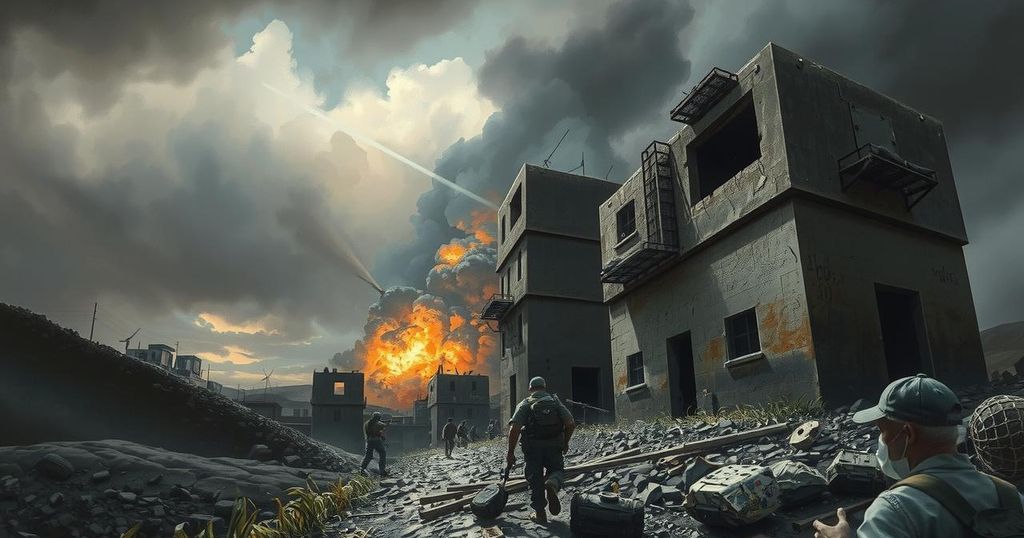U.S. Renewed Strikes Against Houthis Amid Escalating Conflict

The U.S. is actively engaged in a military campaign against the Houthi rebels, deemed a terrorist organization backed by Iran. President Trump has called for the complete annihilation of the Houthis. Houthi officials assert their autonomy, claiming civilian casualties are a result of targeted strikes. A humanitarian crisis looms as military actions escalate.
The U.S. maintains that the Houthis, regarded as a terrorist organization supported by Iran, pose a significant threat. President Trump has reiterated his demands for Iran to cease its support of the Houthis, stating that they “will be completely annihilated.” Recent airstrikes by the U.S. military aim to address ongoing Houthi attacks, reflecting hopes that this campaign will succeed where past efforts faltered.
In the Red Sea, U.S. forces have launched extensive airstrikes against Houthi targets, marking an expansion of military operations against Houthi leadership. Jamal Amer, the Houthi Foreign Minister, emphasized that the Houthis are engaged in warfare with the U.S., with casualties expected. He criticized the bombings in Yemen, asserting that civilian harm occurred due to targeted strikes.
While Houthi officials report civilian casualties, the U.S. government denies these claims, attributing the situation to the Houthis’ actions. Recent provocations included missile attacks directed towards Israel, with the Houthis asserting that they act in solidarity with Gaza amidst ongoing conflicts in the region.
Following an escalation in military actions, Secretary of Defense Pete Hegseth stated that strikes will continue until the Houthis cease their hostilities toward maritime assets. In turn, Jamal Amer indicated that Houthi attacks would persist until humanitarian aid reaches Gaza, implying a link between their military strategy and the Gaza situation.
Despite allegations of Iranian support for the Houthis in terms of military resources and intelligence, Amer contended that Yemen operates as a sovereign state and that the Houthis do not take directives from Iran. He emphasized the autonomy of the Houthi movement, asserting the legitimacy of their actions within Yemen.
Critics of the Houthis assert that their governance is self-serving, failing to prioritize the welfare of the Yemeni populace. When queried about their detainment of U.N. workers and seizure of humanitarian aid, Amer defended these actions as necessary for security, claiming they distribute food to those in need amidst ongoing violence.
As the situation in Yemen evolves, the U.S. continues to pursue strategies aimed at undermining Houthi capabilities, hoping that this new military approach yields more favorable outcomes than previous interventions.
In summary, the ongoing conflict involving the Houthis represents a complex geopolitical crisis with implications extending beyond Yemen. The U.S. military’s renewed airstrike campaign, coupled with the Houthis’ steadfast resistance, underscores escalating tensions that challenge regional stability. The humanitarian aspects of this conflict remain pressing, as both military actions and governance decisions directly impact the Yemeni population amidst one of the world’s gravest humanitarian crises.
Original Source: www.pbs.org








